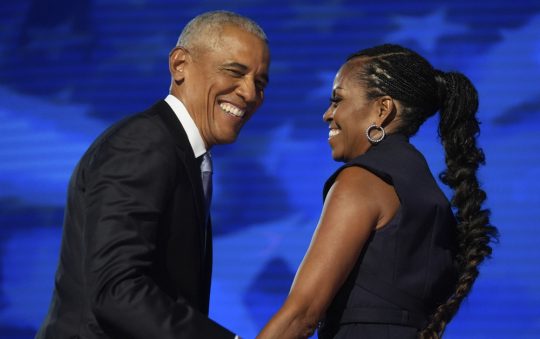
On Monday, April 27, Biden for President held a virtual town hall where Senator Kamala Harris joined with other figureheads in the Black community to discuss the disproportionate impact of COVID-19 on communities of color. Senator Harris, Congresswoman Marcia Fudge, and Bishop Vashti McKenzie, and Dr. Oliver Brooks all gathered to shed insight and information of the effects of the Coronavirus on marginalized communities; the panel was moderated by Biden Campaign Senior Advisor Symone Sanders.
Sen. Harris opened the call by focusing the conversation around the socioeconomic disparities between races and its detrimental impact on the African American community. “Black people have been 30 percent of the deaths from the Coronavirus COVID-19 despite the fact that we are only 13.4 percent of the population,” Harris stated. Amidst the health crisis also lies an economic crisis that is affecting Black Americans more significantly through school and business closures. “Over 50 percent of people with a college education or higher can work from home,” she said. “Only four percent of those with less than a high school diploma can work from home.” Inequity between students of color and their non-POC counterparts speak to a larger disproportion that is blatant in our country.

Dr. Oliver Brooks attributed the disparity of impact between African American communities and other populations to three main factors; comorbidities (pre-existing conditions), social determinants of health, and racism. Receiving more testing is the first step to acquire the accurate data needed to understand how to move forward. “In the United States, there are approximately one million confirmed cases, which means people have been tested and COVID-19 of those about 55,000 deaths. Okay, so about a 5.5 percent death rate. Now, the good news is I believe that that death rate is overestimated because we’ve only tested 1.5 to two percent of the whole population. The bad news is we have only test 1.5 to two percent of the population, so we don’t really know what’s going on.”
As Congresswoman Fudge stated, “Our problem is access; we don’t have access to the health care we should have,” the virtual town hall also held as a platform to showcase their support for Joe Biden surrounding the next campaign and discuss the next steps needed for leadership for Black communities. “Black people have always been aware of systemic and institutional racism, COVID-19 just proved to the rest of the country that it exists,” Congresswoman Fudge said. “If we don’t elect Biden, we will not recover in my lifetime.”
Candidate Biden, according to Senator Harris, is working towards equitable initiatives that will benefit the community. “Joe Biden is saying there should be free testing and treatment for everyone regardless of race, everyone should have access to free testing and treatment. He is saying that there should be an equitable allocation of recovery funds,” issues Harris.
With the state of the Black community’s health and economic progression at stake, the steps we take during this time are crucial for the future of our betterment. The panelists discussed the harsh realities of the lack of leadership that plagues the White House and its effect on vulnerable citizens. “This pandemic will help lead, will uncover those leaders who are strong and leaders who are weak, and the strong will rise to the top,” proclaimed Bishop Vashti McKenzie. “We have to be very focused and very clear to keep our strong leaders in place and get a change of leadership who will make better decisions for our community.”







